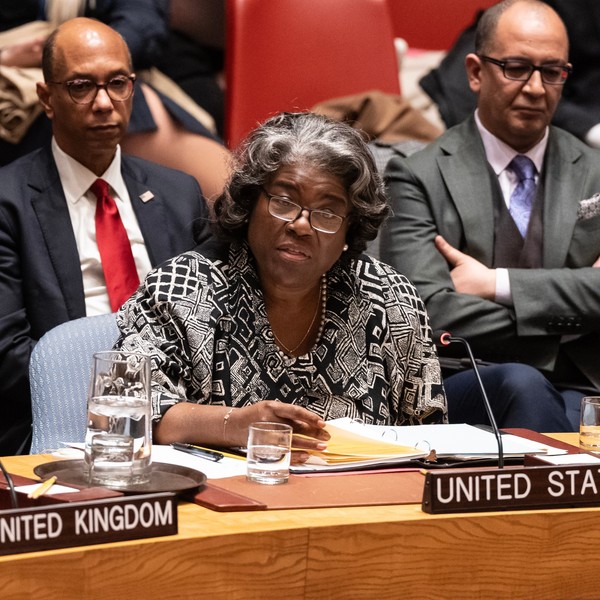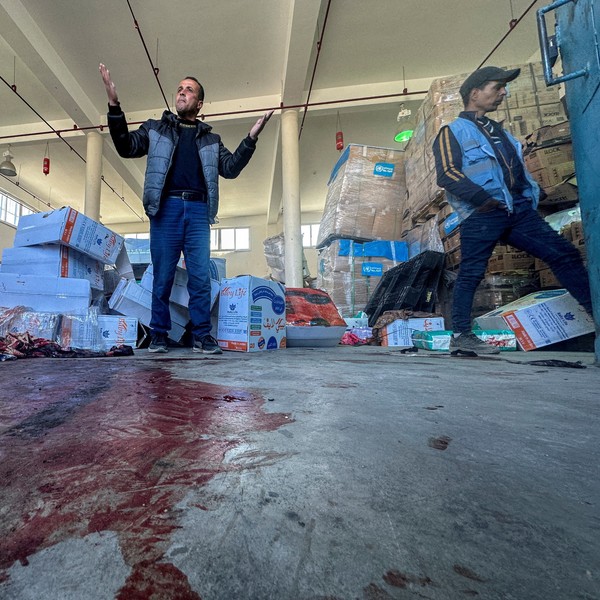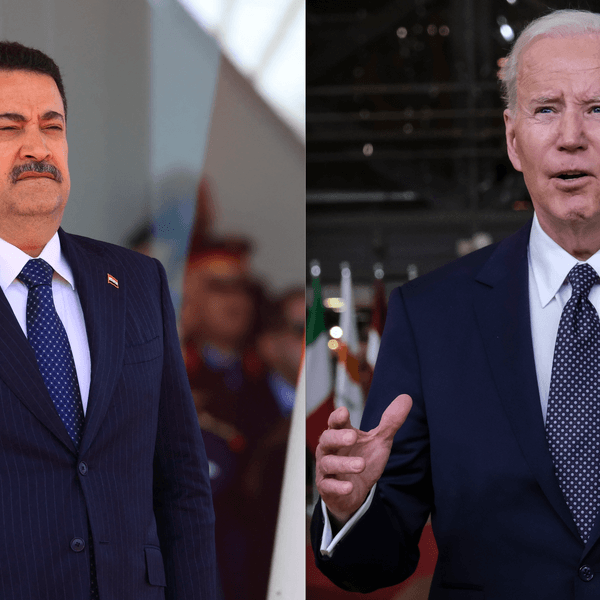The recent essay by Anne Applebaum and Jeffrey Goldberg in The Atlantic, calling for unlimited U.S. support for the reconquest of Crimea by Ukraine, merits a response; not for its intellectual quality, but because it presents in a conveniently distilled form most of the arguments that have been advanced in support of complete Ukrainian victory including the reconquest of Crimea, as opposed to the search for a ceasefire and peace negotiations.
Parts of their report from Ukraine are accurate as far as they go. I can attest from my own travels to the high morale and self-sacrifice of the Ukrainian soldiers, and in particular those who volunteered to fight — initially without any heavy weaponry at all — at the start of the Russian invasion. These are indeed very impressive people, especially when compared to the criminal mercenaries recruited into the Wagner Group on the Russian side.
Much of the essay is based on an interview by the authors with Ukrainian President Volodymyr Zelensky. Nobody should blame President Zelensky for exaggerations and evasions. They are his duty. As Winston Churchill famously said, “In wartime, the truth is so precious that she should always be attended by a bodyguard of lies.” One can however blame U.S. journalists for publicizing such statements with no attempt at checking.
Their argument comes in three parts. The first, wearisomely familiar from every conflict in which America has been directly or indirectly involved, is that this is not a war for territory or geopolitical power, but of absolute good against absolute evil. They quote Zelensky:
“This is a war over a fundamental definition of civilization…to show everybody else, including Russia, to respect sovereignty, human rights, territorial integrity; and to respect people, not to kill people, not to rape women, not to kill animals.”
One element of this is self-evidently true; that Russia, by illegally annexing Ukrainian territory, has violated a critically important international law and norm. In this, Russia has also gone further than (for example) Turkey in its invasion and partition of Cyprus in 1974; for while Turkey (like Russia in the Donbas from 2014 to 2022) created a breakaway non-recognized statelet in northern Cyprus, it did not formally annex the territory to Turkey. This may seem an academic difference, but it matters. What also matters however is that Turkey was and remains a member of NATO, so clearly in this area the lines dividing “civilization” from barbarism are rather more blurred than Zelensky, Applebaum and Goldberg suggest.
This is also true of atrocities. I can confirm from my own researches in Bucha and other towns north of Kyiv that extra-judicial killings and looting by Russian troops took place on a large scale, together with some individual rapes. I heard nothing however to confirm Ukrainian claims of massacres or organized campaigns of mass rape. Nor have international investigators found independent (i.e., not from Ukrainian official sources) evidence to support these claims. On the alleged deportation of children I cannot comment on the basis of my own research.
Moreover, this region saw what was in effect a civilian insurgency against the Russian occupation, including civilians reporting directly to Ukrainian artillery units on the location of Russian troops. Such behavior is an admirable and morally justified response to the Russian invasion, but troops involved in counter-insurgency have a strong and universal tendency to brutality against civilians whom they suspect of helping their enemies to kill them. American troops have hardly been perfect in such conflicts.
And as a former Israeli guard in a prison camp for Palestinians, Goldberg himself should certainly know that when it comes to counter-insurgency, the lines between democracies and dictatorships can be very blurred indeed.
The second wearisomely familiar trope is the latest version of the Domino Theory, whereby a given conflict is not really about where it is happening, but is part of a much wider plan for conquest. According to Zelensky:
“If we will not have enough weapons, that means we will be weak. If we will be weak, they will occupy us. If they occupy us, they will be on the borders of Moldova and they will occupy Moldova. When they have occupied Moldova, they will [travel through] Belarus and they will occupy Latvia, Lithuania, and Estonia…[T]hey will be attacked by Russians because that is the policy of Russia, to take back all the countries which have been previously part of the Soviet Union…When they will occupy NATO countries, and also be on the borders of Poland and maybe fight with Poland, the question is: Will you send all your soldiers with weapons, all your pilots, all your ships?..Because if you will not do it, you will have no NATO.”
This is wrong from start to finish. Both the Yeltsin and Putin regimes have been hostile to Baltic policies, but the only occasion when the Russian government hinted at invasion was when Lithuania threatened partially to cut off access to the Russian exclave of Kaliningrad. Russia has shown no desire whatsoever to invade NATO, and in any case quite clearly does not have an army that could dream of doing so. Russia desires influence over its neighbors, but there is no evidence at all of a plan to “take back” the Baltic States, Moldova, the Caucasus or Central Asian republics.
As Putin has famously declared, “Anyone who does not regret the passing of the Soviet Union has no heart. Anyone who wants it back has no brain.” For historical, cultural, ethnic and strategic reasons that are known to every serious expert on the region, the invasion of Ukraine is about the relationship between Russia and Ukraine.
All this is the build-up to the argument for the reconquest of Crimea. Applebaum and Goldberg might have done better to omit the build-up, because having created an image of the Russian government as insanely reckless, brutal and megalomaniac, they then display a charming insouciance about the danger that faced with the possible loss of Crimea and the fall of his regime, Putin would begin a spiral of escalation towards nuclear war.
This insouciance is all the more striking because they state explicitly that their goal in overthrowing Putin and weakening Russia goes far beyond the “liberation” of Crimea (irrespective by the way of the wishes of its inhabitants) let alone the defense of Ukraine:
“[Ukrainian] success can support and sustain a civilizational change. Russia, as it is currently governed, is a source of instability not just in Ukraine but around the world…The investments of Russian companies keep dictators in power in Minsk, in Caracas, in Tehran…A Ukrainian victory would immediately inspire people fighting for human rights and the rule of law, wherever they are.”
Oh really? In Palestine, Egypt, Saudi Arabia, Tunisia, Azerbaijan, Kashmir? The hypocrisy here is transparent. What Applebaum and Goldberg mean is that the overthrow of the Putin regime and the destruction of Russia as a great power (or even as a united state) will weaken opponents of the United States and Israel and strengthen U.S. global hegemony.
Under their façade of commitment to global democracy, Applebaum and Goldberg display a typical contempt for the actual opinions of people across the non-Western world, including in democracies like Brazil, India and South Africa.
It is not that people in these countries approve of the Russian invasion of Ukraine. It is that they do not perceive such a huge difference between the regional hegemonic ambitions and criminal actions of Russia and the global ones of the United States; and they are thoroughly sick of having their opinions and interests ignored by Washington in the name of an American moral superiority that actual U.S. policies in their parts of the world have repeatedly belied. Neither the content nor the tone of Applebaum’s and Goldberg’s essay will do anything to change their minds.















